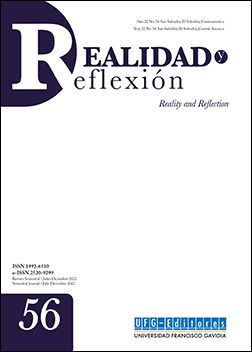A journey towards artificial intelligence in education
DOI:
https://doi.org/10.5377/ryr.v1i56.15776Keywords:
artificial intelligence, intelligent tutoring, education, gaps in learning, on line classroom, technology enhanced learningAbstract
The rapid advance of computer technologies has facilitated the implementation of AIEd applications (Artificial Intelligence in Education), which refers to the use of technologies or application programs of AI (Artificial Intelligence) in educational environments to facilitate teaching, learning or decision making. In this article, the impact of Artificial Intelligence in education is described and a perspective on this topic is presented. It also addresses how AI can help decipher students' difficulties and understand how to help them, enhance the imagination of a community, and design a new educational experience. Likewise, the challenges, benefits and controls that must be addressed so that an effective AI can be obtained in this sector.
Downloads
17054
Downloads
Published
How to Cite
Issue
Section
License

This work is licensed under a Creative Commons Attribution-NonCommercial-ShareAlike 4.0 International License.
© Universidad Francisco Gavidia
Instituto de Ciencia, Tecnología e Innovación (ICTI)
Reality and Reflection
The content and opinions expressed in the publication are the responsibility of the authors of the published articles. The authors assign the publishing and publishing rights, in printed and digital version, to the Universidad Francisco Gavidia.
Proof of originality and assignment of publication rights
The authors must sign a certificate in which they indicate that the text presented for publication is original, unpublished and that it has not been sent for review in another academic publication; In turn, the authors assign the rights of publication and publication to Francisco Gavidia University. The format of this record will be sent through the emails: editores@ufg.edu.sv and jlozano@ufg.edu.sv
The journal Reality and Reflection is housed in the institutional dissemination platforms (web page and in the repository), as well as in databases and other pages of scientific dissemination. The publications of the Francisco Gavidia University are subject to the Salvadoran copyright law, contemplated in the Intellectual Property Law https://www.asamblea.gob.sv/
The content of the work is the sole responsibility of the author, therefore, if for any reason or reason, direct or indirect, the Editor is obliged to pay any compensation to a third party derived from the work of the author, whether it is established in a transaction, agreement or final or enforceable judicial sentence, the Editor may repeat against the Author for the total amount of compensation, plus adjustments, interests and costs that correspond.
It will be the obligation of the UFG to grant five copies of the publication which will be delivered at the UFG Editores headquarters in San Salvador.

